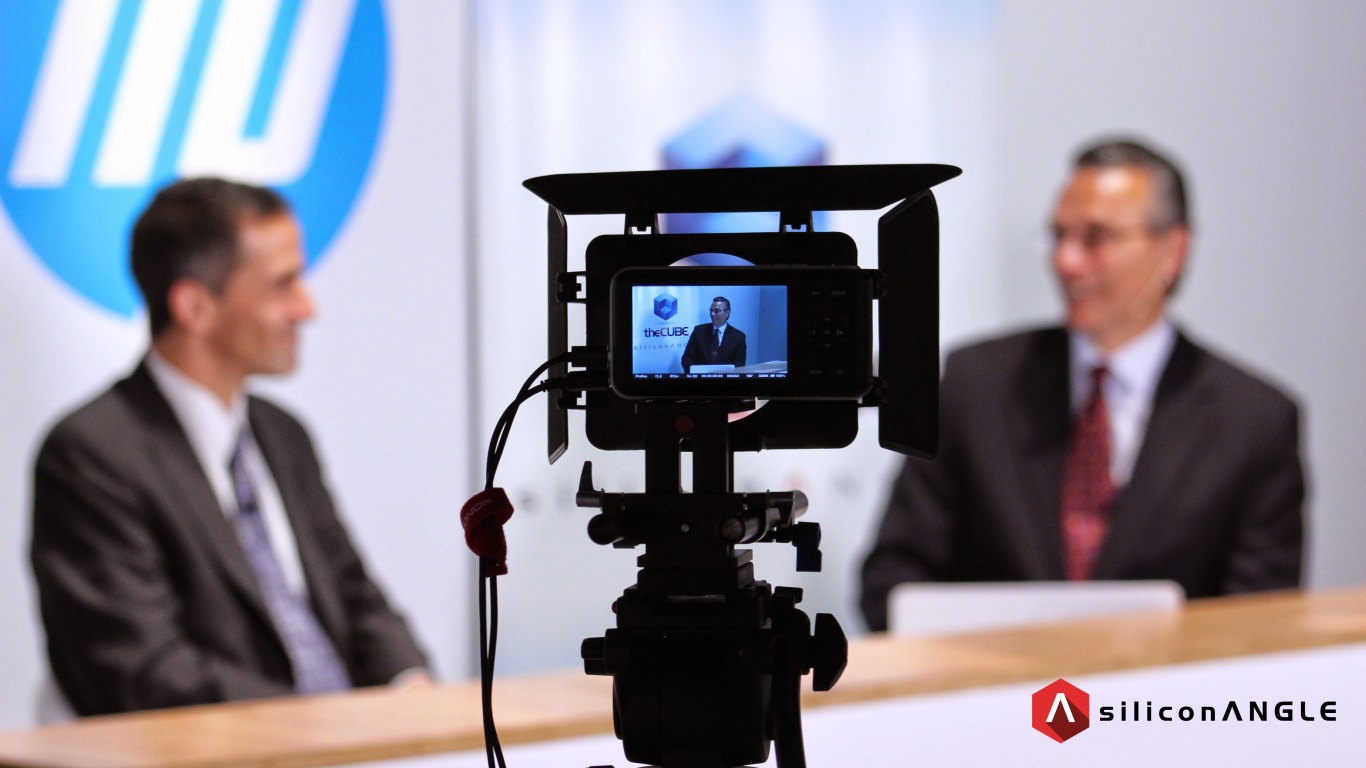 NEWS
NEWS
 NEWS
NEWS
 NEWS
NEWS
theCUBE Live At HP Discover 2014
As Hewlett-Packard Company prepares to split itself in two, there’s been a lot of speculation that what it’s really trying to do is wash its hands off of a dying PC and printer businesses.
The split is a sign that CEO Meg Whitman sees greater opportunity for growth and profits in selling commercial tech products, including data-center hardware, business software and cloud services, some analysts say. That’s where much of her focus has been in recent years, and it’s the reason why she’s assuming the role as chief executive of the new company dubbed Hewlett-Packard Enterprise.
But what about the prospects of the other new company, HP Inc? At first glance it doesn’t look like such a rosy future lies in a store for a business that’s solely focused on selling hardware. The PC market is tough, nobody is denying that. Sales are declining, profit margins are thin, and the situation isn’t likely to improve any time soon. But at the same time, no one expects the PC market to disappear completely – there are still cases where PCs are more useful than smaller-screen devices, most especially when it comes to business use.
As things stand, HP’s actually doing rather well in the remaining PC business. For sure its profits are slim – just 3.6 percent of its $25.3 billion revenues – but its market share remains strong. People like HP’s computers, which is why it currently holds an 18.3 percent global share, behind China’s Lenovo Group Inc, which holds 19.6 percent according to IDC. The PC market might be unlikely to grow anytime soon, but it’s not going to die either, and HP is still selling plenty of machines.
Of course HP Inc., isn’t just going to be about PCs. It’s also got a nice little sideline with its printers, in a market it just so happens to dominate. Admittedly the printer business is also in decline, mostly because people like to store photos and files online and view them on their phones and tablets. But just like PCs, printers won’t disappear completely. And HP Inc. has still has lots of room for maneauver, such as getting into 3D printing systems.
What’s crucial about HP Inc’s printers is they still make bucketloads of cash. Unlike with PCs, the profit margins in printers and ink cartridges are enough to make even tobacco companies envious. Historically, much of the cash earned from HP’s printer business has been used to fund acquisitions for its enterprise and computing businesses, and not all of these have worked out (the acquisition of Autonomy comes to mind). With the split, a newly independent HP Inc. won’t have to worry about funding any more enterprise acquisitions – instead it’ll be able to spend its cash as it sees fit, whether its for stock buybacks, dividend increases and other shareholder-friendly actions, or to further its hardware businesses.
The newly independent, well-funded HP Inc. is going to be a much more agile beast than the encumbered giant it is now. It can use this flexibility to corner the opposition and grow its market share, either through more aggressive pricing, (like the $199 11.6-inch Windows notebook it unveiled last week) or perhaps by acquiring its rivals. It can also use its cash to pursue newer, consumer-friendly avenues like mobile devices and wearables.
This is all just speculation for now, but the point is that HP Inc., shouldn’t be written off simply because Meg Whitman feels the enterprise is going to be more profitable. She may well be right, but there’s still plenty of money to be made in hardware, and a newly minted, pure-play seller like HP Inc., is going to be well placed to grab the lion’s share of it.
Support our mission to keep content open and free by engaging with theCUBE community. Join theCUBE’s Alumni Trust Network, where technology leaders connect, share intelligence and create opportunities.
Founded by tech visionaries John Furrier and Dave Vellante, SiliconANGLE Media has built a dynamic ecosystem of industry-leading digital media brands that reach 15+ million elite tech professionals. Our new proprietary theCUBE AI Video Cloud is breaking ground in audience interaction, leveraging theCUBEai.com neural network to help technology companies make data-driven decisions and stay at the forefront of industry conversations.